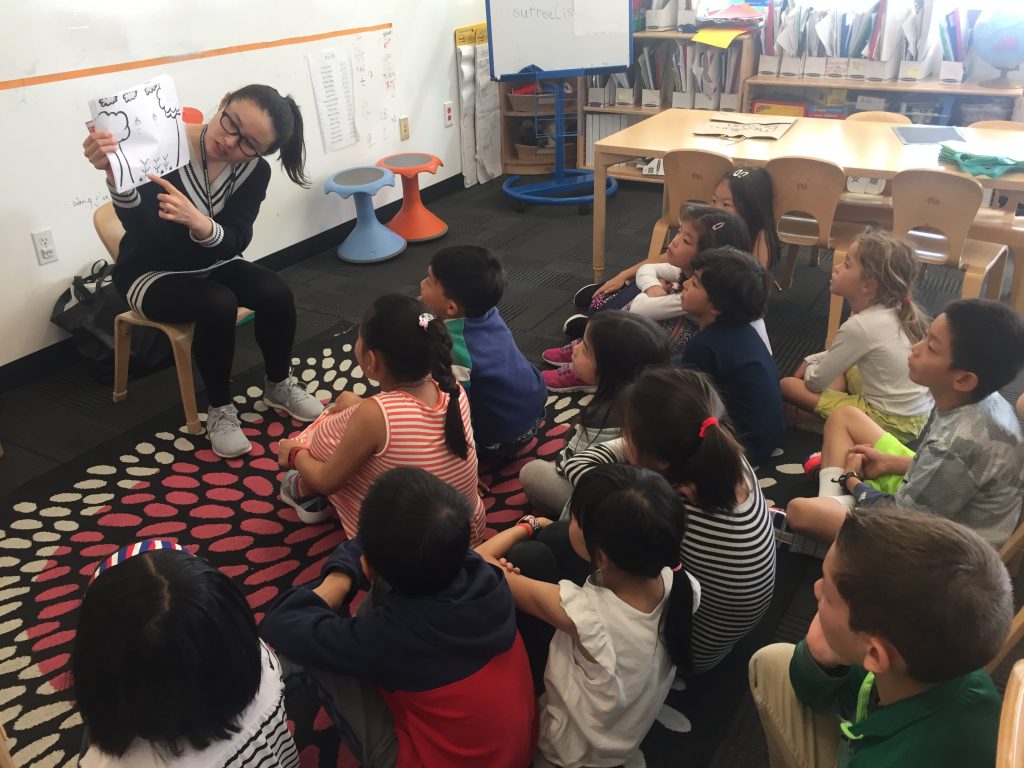INTERNATIONAL SCHOOL OF THE PENINSULA / CHINESE WEEKEND SCHOOL – MANDARIN LANGUAGE & CULTURAL CENTER

Working as an intern teacher in two different teaching contexts allows me to familiarize myself with the responsibilities a Chinese teacher has and the required skill set. In the Chinese immersion program at ISTP, Chinese teachers are not only language teachers but also homeroom teachers, so they are responsible to design their curriculum according to the IB framework and teach all the subjects in Chinese. The Chinese teachers of the same grade level in this school attend meetings regularly to brainstorm meaningful inquiry-based teaching content and class activities. Therefore, all students are learning the same course content through similar activities. In this way, the Chinese teachers can monitor their students’ progress and try hard to make sure that their students will reach similar levels of proficiency when they move to the next grade.
In Chinese weekend school, the teachers are in charge to design and deliver learning activities that help their students remember vocabulary and sentence structures, so the listening and speaking skills are the main foci. Those teachers do not need to follow an assigned framework when they create learning activities. This fact enables them to have more flexibility, and the practice and learning experience students receive in different classes can be quite different. Therefore, language content-wise, the teacher has to accommodate more individual differences.
The teachers in those two teaching contexts face contrasting challenges.
However, I think both contexts are beneficial for a new teacher to develop professionally. I learned the four types of inquiry-based teaching in ISTP and the goal of inquiry-based teaching is to guide students to figure out the problems they will encounter when they work on their language learning projects and search for possible solutions by posing questions. As a teacher, I need to foster their ability to think critically and explore possible solutions independently. In the Chinese weekend school, my job is to design and deliver learning activities that engage and interest my students, so they are going to spend more time learning the language both in school and at home. Though I teach the same language, the goals and purposes of my Chinese classes are very different. The number of responsibilities of the Chinese teachers in the two contexts is incompatible, but the amount of effort they put into preparing their classes comparable.
To a new teacher, working as a full-time teacher in a day school will be an ideal starting point of his or her teaching career, but even if he or she needs to start their career in local Chinese weekend school, they can still learn plenty transferrable teaching strategies in that context. Therefore, when I start job hunting next in late August, I will not restrict myself from only applying for the teaching positions in day schools.
Click to see what it is like to be a Chinese teacher in the US.



You must be logged in to post a comment.